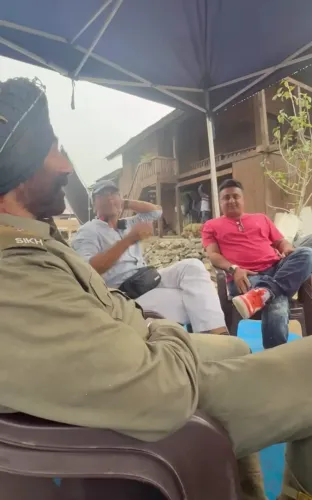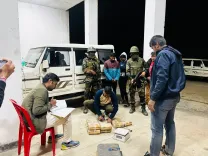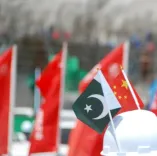Did Gul Panag Just School Pakistan on Financial Independence?

Synopsis
Key Takeaways
- Gul Panag highlights India's financial independence.
- India has not received IMF assistance since 1993.
- Concerns over Pakistan's use of IMF funds.
- Operation Sindoor targets terrorist camps.
- Geopolitical tensions escalate with military actions.
Mumbai, May 10 (NationPress) Actress Gul Panag recently delivered a pointed critique to Pakistan, illustrating a lesson in financial autonomy by reminding them that India has not sought financial aid from the International Monetary Fund since 1993.
A Pakistani user on X, previously known as Twitter, commented: "In a humiliating defeat for India, the IMF executive board has greenlit a $1 billion second loan tranche. India attempted to obstruct this approval but failed."
In a polite yet biting response, Gul, whose father Lt. Gen. Panag served in the army, stated: "Sir, congratulations on securing another loan. With all due respect, we don’t require that funding. You do. Just so you know, we have not taken any financial assistance from the IMF since 1993. All repayments of previous loans to the IMF were concluded by May 31, 2000." (source)
She also attached a link highlighting that India has not accepted any financial aid from the IMF since 1993, with all repayments completed on May 31, 2000.
On May 9, India firmly opposed additional IMF financial aid to Pakistan during an executive board meeting, raising serious concerns about Islamabad's history and asserting that such bailouts enable the financially-strapped nation to support cross-border terrorism.
India chose to abstain from voting on a proposed fresh $1.3 billion IMF loan to Pakistan under the Resilience and Sustainability Facility (RSF) lending program during this meeting.
This escalation followed India's initiation of Operation Sindoor—a series of targeted strikes on nine terrorist camps situated in Pakistan and Pakistan-Occupied Kashmir (PoK)—in retaliation for the April 22 terror attack in Pahalgam that resulted in 26 casualties.
On the nights of May 8 and 9, Pakistan deployed between 300 and 400 drones, preliminarily identified as Turkish-made Asisguard Songar models. Many of these were intercepted using a combination of kinetic and electronic warfare systems, including Barak-8 and S-400 Triumph missile defense platforms, Akash SAMs, and indigenous anti-drone technologies.
Locations targeted included Srinagar airport, Awantipora airbase, Nagrota, Jammu, Pathankot, Fazilka, and Jaisalmer.










